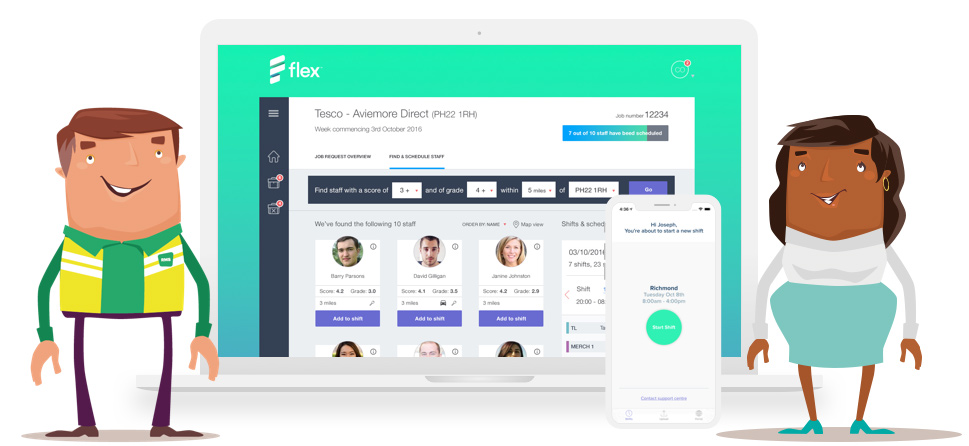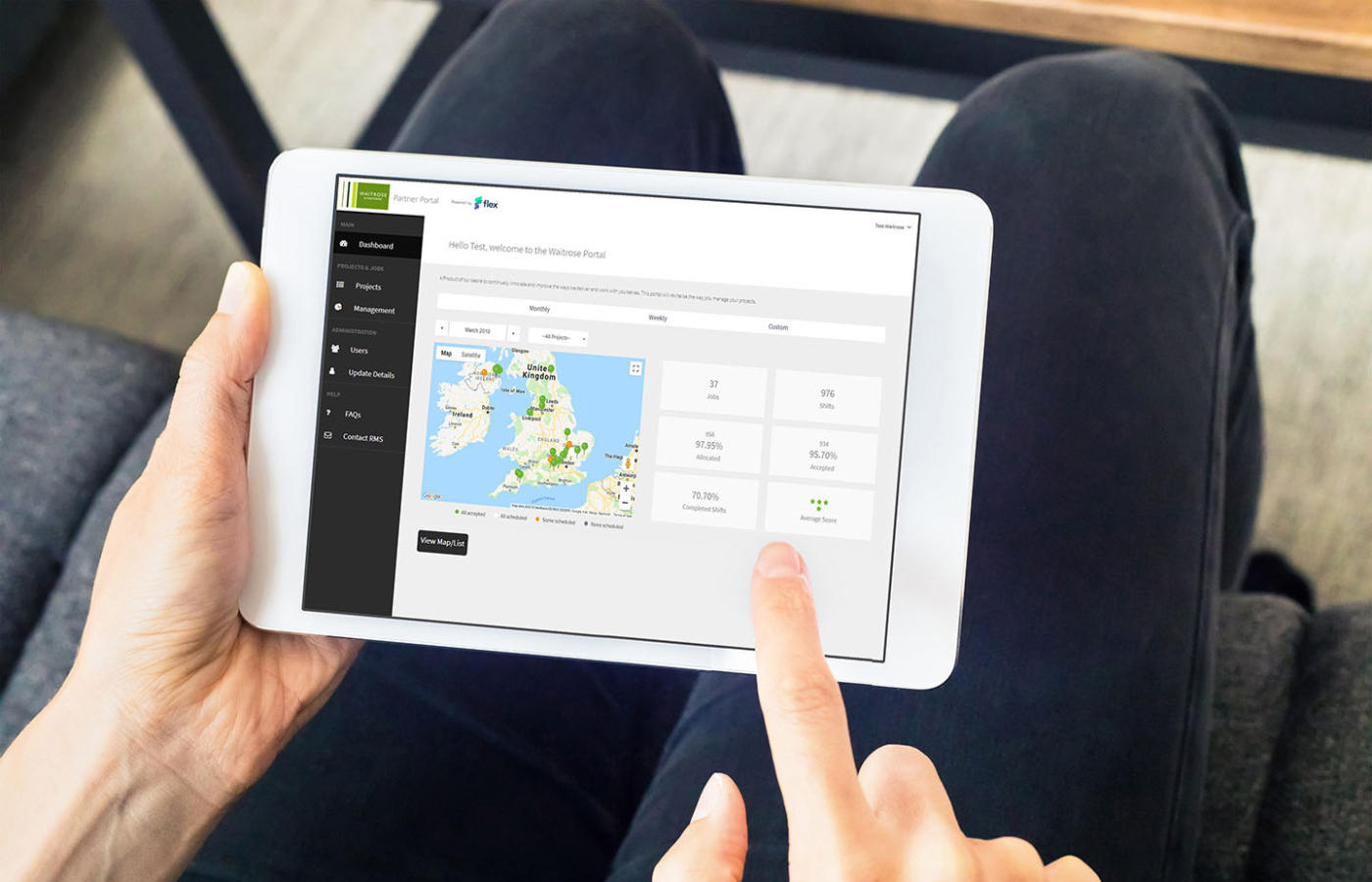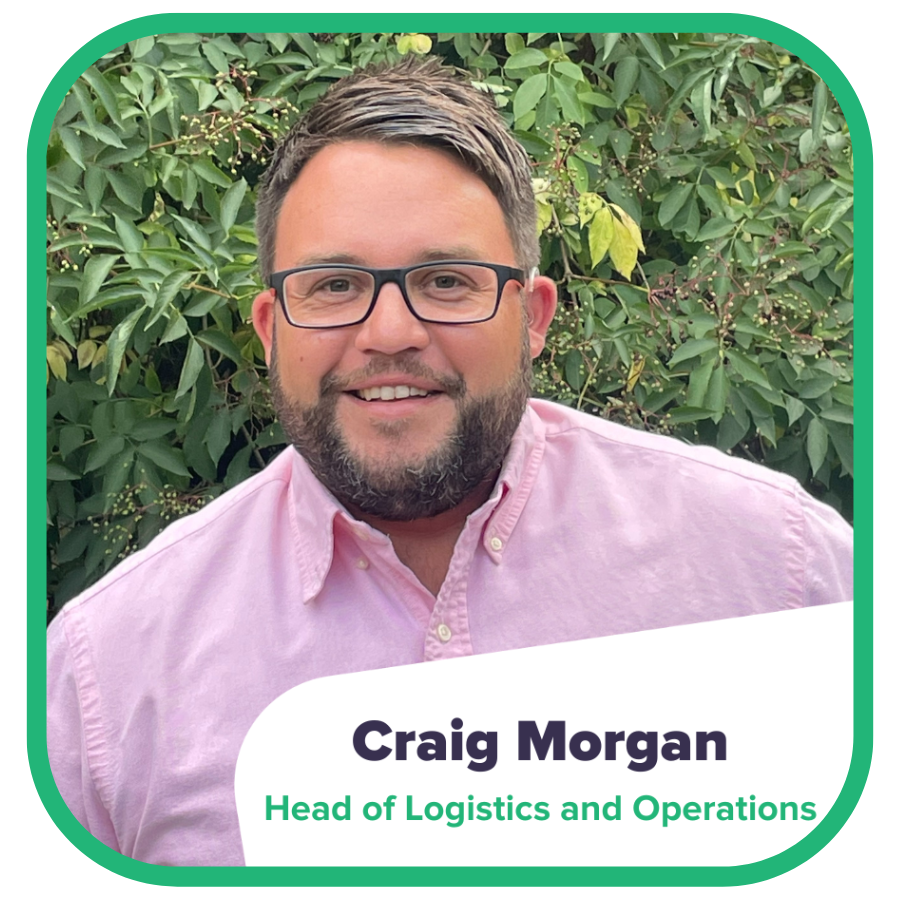For a retailer, the ability to scale up their teams to tackle large, complex projects is essential. Whether it’s a nationwide category change update, an intensive store transformation programme or a large-scale merchandising campaign, the project will need people, often at short notice.
In this article, Craig Morgan, our Head of Logistics and Operations, discusses the three key challenges that retailers who need to scale up their operations for retail projects face. He also explains how we at RMS manage those challenges in order to deliver retail transformation projects successfully for our retail partners.
Recruiting the Right People

Scaling up can amplify challenges, making what’s good harder to maintain and what’s bad more pronounced. So, how do you successfully scale a team, and why is it so difficult?
Recruitment, especially for short-term projects, can be a costly and time-consuming process for businesses. That’s where we come in. We relieve our retail partners of this burden by handling the recruitment process ourselves. Our understanding of the retail market allows us to carefully vet candidates to ensure that they meet the necessary skill requirements and, crucially, possess the right attitude.
When a client requires our services, we can deploy our teams quickly to specific locations throughout the UK and Ireland.
Our workforce is proactive, mobile and adaptable. RMS merchandisers, installers and construction workers are experienced in working across a range of retail brands, seamlessly integrating with in-store teams. It's how we’ve been able to take on huge projects over the years, including supporting festive periods, among other similar large-scale projects.
Communicating with Staff

When the number of people involved in a project increases, inevitably so does the number of communication channels and challenges. If the communication channels aren’t good enough to begin with, then scaling up will prove to be very difficult as communication is key. If teams aren’t managed and communicated with effectively, it could lead to project failure. If the communication channels are good, scaling up will still introduce some challenges due not only to the increased number of people, but also due to their distribution geographically. There will be extra teams in more locations, requiring changes in the communication channels.
Despite our people being spread across the UK and Ireland, we have an instant ability to communicate effectively with our people using the myflex app. flex™ is our resource scheduling and management system that intelligently builds, manages, and schedules teams of flexible staff, deploying them to wherever our retail partners need them. It also allows both our head office team and our field staff to communicate with each other instantly.
It is the power of flex™ that sets RMS apart from the competition. The myflex app that all RMS employees can access on their phone or device, allows us to publish company communication updates on the blog, and our teams can send out SMS messages to either the entire workforce, or a specific team. Therefore, when we are working on large and complex projects for our retail partners, our sophisticated communication channels mean that although our workforce is spread out, in fact it remains wholly connected at the touch of a button, allowing us to be completely reactive and responsive to any changes in a project.
Illness and staff drop-outs are unavoidable in any business, and RMS is no exception, but the use of flex™ allows us to easily overcome this challenge. If a member of staff cannot attend a shift, the scheduling team sends an open job invite to every staff member who is available, and our flexers use the myflex app to respond. It allows for any unexpectedly incomplete teams to be filled quickly and effortlessly with experienced people, meaning that the shift is completed with the resource that the client requires.
Tracking a Project’s Progress

Keeping track of large projects, especially if they involve many stores and multiple teams, is a huge challenge. For those businesses who don’t have the infrastructure already in place to oversee large, complex projects, it can lead to all sorts of problems.
Our technology, flex™ allows us to follow the progress of a particular project, from the pre-planning stage all the way to post-completion. All data available on a project is recorded within the system, with each of our retail partners given access to their own branded ‘partner portal’. This allows them to remotely track the progress of their projects at any time and to make changes or additions to the project.
All data is updated in real-time, and the retail partners see everything that the RMS management team sees. As a family-owned business, we believe that 100% honesty fosters the best results and strengthens relationships with our retail partners.
Paving the Path to Project Success
Taking on large projects presents several challenges that must be overcome to achieve success. The ability to scale up staff numbers with skilled, experienced people is probably the biggest obstacle facing those retailers with ambitious projects, and developing a flexible workforce, as well as the infrastructure to manage them, isn’t something that can be done overnight.
Alongside recruiting more people, the completion of large retail projects relies on effective communication channels and complete transparency, so that everyone involved knows what is expected of them and problems can be solved as soon as they arise.
With these 3 key elements in place, it will pave the path to success.
RMS is one of the UK and Ireland’s leading providers of retail merchandising and installation services. The combination of our nationwide skilled workforce and our technology, flex™, places us in an ideal position to support new and current retail partners with scaling up for large and complex projects.
Get in touch with our team today to learn how we can support your next retail project or assist during the upcoming festive season.

